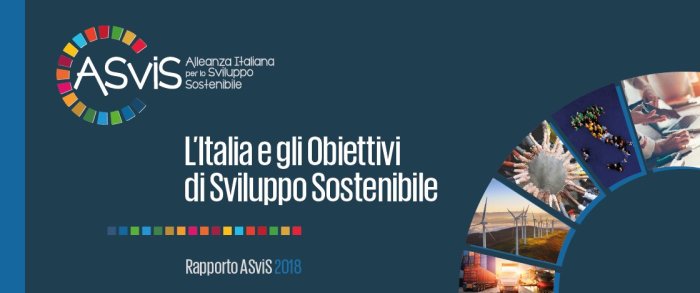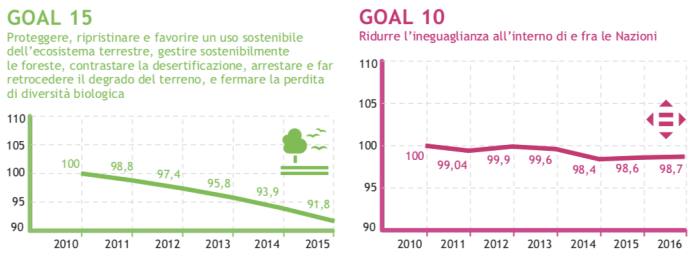
On October 4th, the Italian Alliance for Sustainable Development (ASviS) launched its 2018 Report on “Italy and the Sustainable Development Goals” during a public event hosted by the Chamber of Deputies of Italy.
The Report has four main components. First, it presents an update of the international efforts that are currently being promoted at the United Nations and European level in order to implement the 2030 Agenda for Sustainable Development. Second, it assesses Italy’s progress towards the achievement of the SDGs, discussing the recent policies of the Italian government, the ongoing evolution of the legislative framework, and the wide range of initiatives proposed by civil society. Third, it focuses on the sub-national dimension of SDG implementation, suggesting the need to more effectively localise the Goals and analysing current progresses and challenges at the level of cities and regions. Lastly, it highlights ASviS’s proposals to accelerate Italy’s transition to a sustainable development trajectory through cross-sectoral and systemic actions.
With respect to the European Union, the Report introduces a set of composite indicators (first presented in July 2018) to collate data from EUROSTAT’s monitoring reports and more immediately illustrate the situation of SDG implementation in the EU. In doing so, the Report shows that moderate or significant progress across nine Goals has gone hand in hand with a worrying negative trend for Goal 15 (Life on Land) and Goal 10 (Reduced Inequalities), affecting the chances of the EU and its member states to achieve the 2030 Agenda in its entirety.

Even more importantly, the Report suggests that European institutions have so far failed to accelerate the pace of change, in a wider context characterised by geopolitical insecurities and rising clashes between EU member states. According to ASviS, the periodic announcements of the European Commission have not yet translated into an expected EU-wide strategy for achieving the SDGs, despite positive developments including the newly-adopted European Pillar of Social Rights, the 2018 Circular Economy Package, and the actions taken to implement the recommendations of the High-level Expert Group on Sustainable Finance.
From this perspective, ASviS also recalls the resolution of the European Parliament of May 31st, which criticised the failure to effectively integrate the SDGs into existing proposals for the next Multiannual Financial Framework (2021-2027). At the same time, however, the Report highlights the wide range of initiatives being undertaken by civil society organisations and businesses (including through the work of the Multi-stakeholder platform on SDGs), and notes the fundamental role that these actors can play in pushing the EU on the sustainable development trajectory required to implement the 2030 Agenda.


 The Report has three main components. First, it presents an assessment of Italy’s progress in the implementation of the SDGs. Second, it details a list of concrete proposals for the Italian government to consider in the next budget law and in subsequent policy developments. Finally, it proposes an innovative analytical model to forecast possible pathways for sustainable development in Italy based on a series of different policy scenarios to 2030.
The Report has three main components. First, it presents an assessment of Italy’s progress in the implementation of the SDGs. Second, it details a list of concrete proposals for the Italian government to consider in the next budget law and in subsequent policy developments. Finally, it proposes an innovative analytical model to forecast possible pathways for sustainable development in Italy based on a series of different policy scenarios to 2030.